Joaquin Phoenix on messing with David Letterman's mind and getting the hots for Scarlett Johansson in Her
He’s been a sadistic emperor, a feral war veteran, and a music legend. Now he’s in love with a computer. Is it any wonder Joaquin Phoenix finds acting a bit odd?
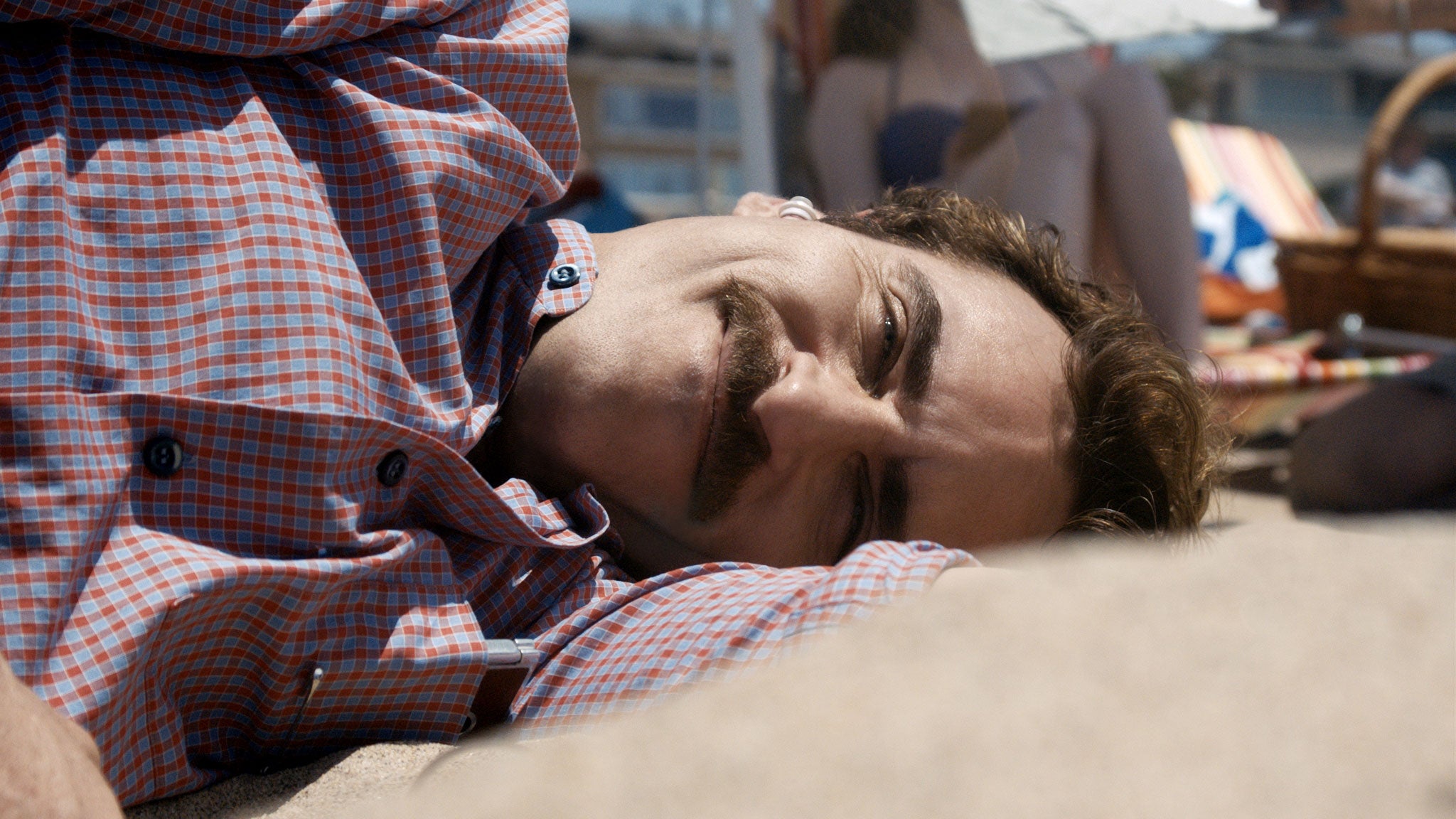
Your support helps us to tell the story
From reproductive rights to climate change to Big Tech, The Independent is on the ground when the story is developing. Whether it's investigating the financials of Elon Musk's pro-Trump PAC or producing our latest documentary, 'The A Word', which shines a light on the American women fighting for reproductive rights, we know how important it is to parse out the facts from the messaging.
At such a critical moment in US history, we need reporters on the ground. Your donation allows us to keep sending journalists to speak to both sides of the story.
The Independent is trusted by Americans across the entire political spectrum. And unlike many other quality news outlets, we choose not to lock Americans out of our reporting and analysis with paywalls. We believe quality journalism should be available to everyone, paid for by those who can afford it.
Your support makes all the difference.Joaquin Phoenix is not the man he used to be. In 2000, in Gladiator, he was the sadistic and bullish Emperor Commodus; in Walk The Line, five years later, he played the sombre "Man in Black", Johnny Cash; and in The Master (2012), he was the impulsive, near-feral war veteran Freddie Quell. The "Him" in Her, Joaquin Phoenix's latest film, isn't as classically masculine as any of the roles that earned Phoenix his reputation. Theodore Twombly is a kind, soft-spoken type, hailing from some unspecified time in the near-future; a sort of new New Man.
Her is Spike Jonze's first film as both writer and director, but like the films he made with screenwriter Charlie Kaufman, Being John Malkovich (1999) and Adaptation (2002), it is built around an idea which explores the essence of what it means to be human; it's about a man who falls in love with his computer operating system (think iPhone's "Siri", several thousand updates from now), represented by the disembodied voice of Scarlett Johansson.
Twee by name and twee by nature, Twombly lives in a future Los Angeles where everyone dresses in soft fabrics and gender-neutral designs and it's possible to earn a living, as he does, by composing heartfelt, personal letters on behalf of complete strangers. The New Yorker's critic Richard Brody described the film as a "feature-length kitten video".
"He seems like a pretty nice guy to know," is the verdict on Theodore from Joaquin Phoenix. This Joaquin Phoenix, the one sitting opposite me in a Soho hotel room, is different again. He wears his shoulder-length hair with a clean-shaven face, and his smart trousers with Converse classics – both textbook sartorial tells of a usually scruffy young man smartened up for photo day.
If Phoenix has just been put through the wringer by a grooming team, however, there's no sign that it's ruined his mood. He is one of those men whose faces suggest a temperament entirely different from the one he naturally possesses. His searching blue eyes, the dark shadows under them and the scar on his top lip convinced audiences and casting directors alike to peg him as the troubled, brooding type. In fact, in person, he's the opposite: jovial, engaged and with the "dude-speak" vocab and live-and- let-live attitude of a true California love child. What advice would he give to a friend who, like Theodore, had fallen in love with his computer? "I'd be like, 'Hit it.' Absolutely!"
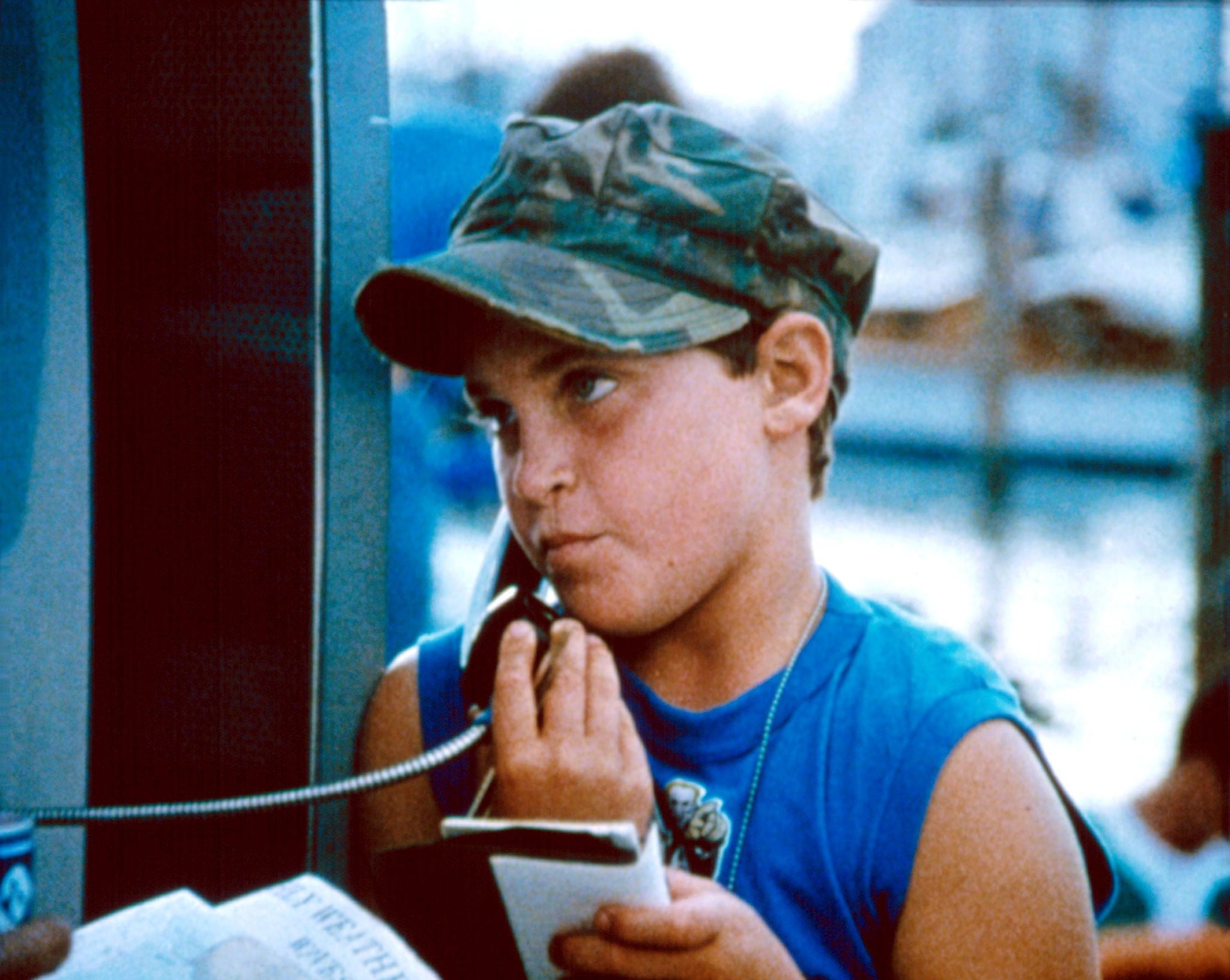
In fact, Phoenix wasn't born in California, but in San Juan, Puerto Rico, to parents who were members of the Children of God, a religious group, famed for their practice of "flirty fishing", which used sex to convert new members. The middle of five children, he took up acting along with several of his siblings to help support the family after his parents grew disillusioned with the Children of God and resettled in Los Angeles. More than 30 years later, he says, his enthusiasm for acting hasn't waned. "For me, joy is really experiencing something and really doing something, so there are many days that aren't enjoyable; you wouldn't say, like, 'Oh I'd wanna sit and feel that for six hours,' but, ultimately, it's an amazing experience to have had that."
Three Academy Award nominations and a Golden Globe for his performance in Walk the Line stand testament to Phoenix's talent, but the 39-year-old's modesty and humour seem at odds with the image of the tortured actor. He laughs at the suggestion that he might have a method for getting into roles, "No, I don't, I really wish I did!" and insists he often questions his own choices: "You're three weeks in and you have doubts about decisions that you've made."
Whether this perception of Phoenix originated in his looks, his choice of roles, or the shadow cast by the tragic 1993 death of his brother, River Phoenix, it was undoubtedly reinforced by I'm Still Here, a 2010 mockumentary directed by his brother-in-law Casey Affleck. The film depicted Phoenix's attempts to reinvent himself as a rapper, despite no discernible skill. Throughout the period of filming, he would appear in public with a wild beard, matted hair and permanently attached sunglasses, culminating in a bizarre and awkward interview on Late Show with David Letterman to promote Two Lovers, which he said would be his last film. Phoenix mumbled incoherently. Some speculated he had lost his mind.
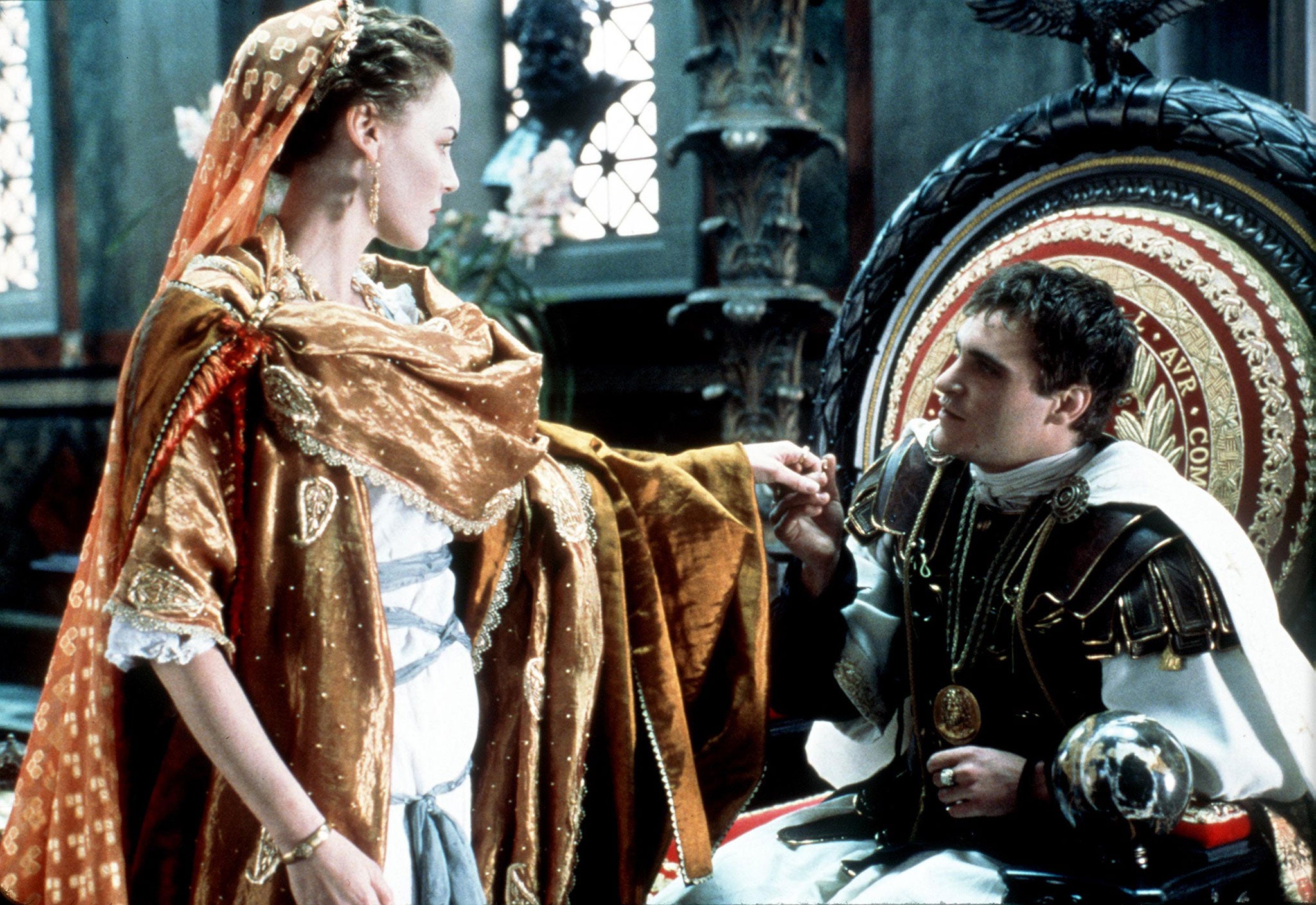
We now know that Two Lovers was not his last film. But even after revealing that that documentary was in fact mockumentary, the perception lingered that Phoenix was a bit too intense. For an actor used to making two or three movies a year, the wait for The Master in 2012 was a long one. Yet, there are no regrets. I'm Still Here might have been a hoax but, for Phoenix, it wasn't a joke: "I don't know that I really thought that much about how people saw me before, but working on that movie, I had to," he says. "When I do press, sometimes I can tell from people's questions that they have this idea of me and I wonder: where does this come from? I never really knew, because I never really read stuff, y'know? So it was really interesting to read while it was happening, and then take on information and see how we could apply it to the film."

Watch Apple TV+ free for 7 days
New subscribers only. £8.99/mo. after free trial. Plan auto-renews until cancelled

Watch Apple TV+ free for 7 days
New subscribers only. £8.99/mo. after free trial. Plan auto-renews until cancelled
Remaining in character as "Joaquin Phoenix", then, is the closest he has ever got to taking himself too seriously. "I'm not a Method actor, I don't even know what Method acting is, but I think that you try, or at least I try, to stay in the world of the characters as much as possible. Only because if I step back from it and I think about what we're doing, it's usually so ridiculous that it's just hard for me to keep a straight face."
When I suggest that conveying an emotional connection with a computer for Her might have been a particularly bizarre experience, he reminds me that all film acting is bizarre. "There's all of those technical things that already make the situation weird. Y'know what I mean? Even when you're talking on the phone in a scene and there's someone else doing the voice, it's strange. But I think at some point we just bought it and we went with it and we didn't make jokes… We just looked at it like a real relationship."
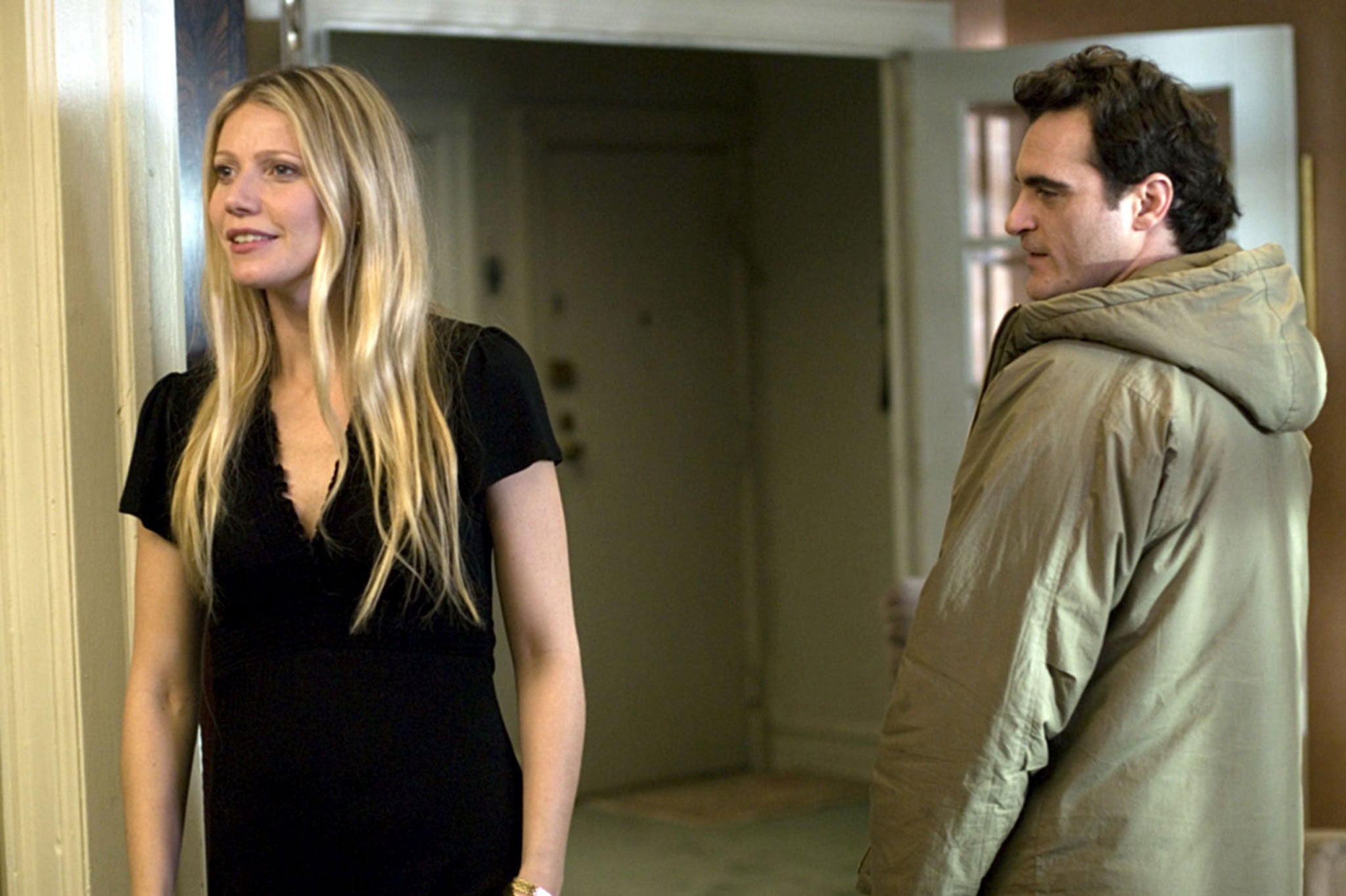
This requirement to "go with it", no matter how unnatural it feels, is common to all film acting, but it's not often that this has such a clear parallel with the story of the character. In Her, Theodore's experience of falling in love with his "OS", Samantha – and our experience of watching this – also involves trying to ignore the interceding technology and overcome the self-conscious embarrassment of getting swept up in emotion.
Samantha is the latest in a long line of human-like computers in futuristic films which articulate our anxieties. Does sending a tweet count as engaging with the world? Are Facebook friends as good as real-life friends? Is online dating the way to find true love? And ultimately, if we connect to other people only via the intermediary of a computer, are we really connecting to other people at all?
But unlike HAL in 2001: A Space Odyssey (1968) who ultimately turns homicidal, or Tron (1982), in which computers are an unreality from which humans must escape, Her asks us to take its central relationship seriously, as a romance as potentially meaningful, or meaningless, as any other. This is the part of the film which Phoenix seems to find most compelling. "Isn't love totally subjective? I mean, I feel like there's many relationships in the world that I would look at and find questionable and others that I would find amazing and support, but other people would find questionable. I think that's part of what the movie is saying: is it real to you?"
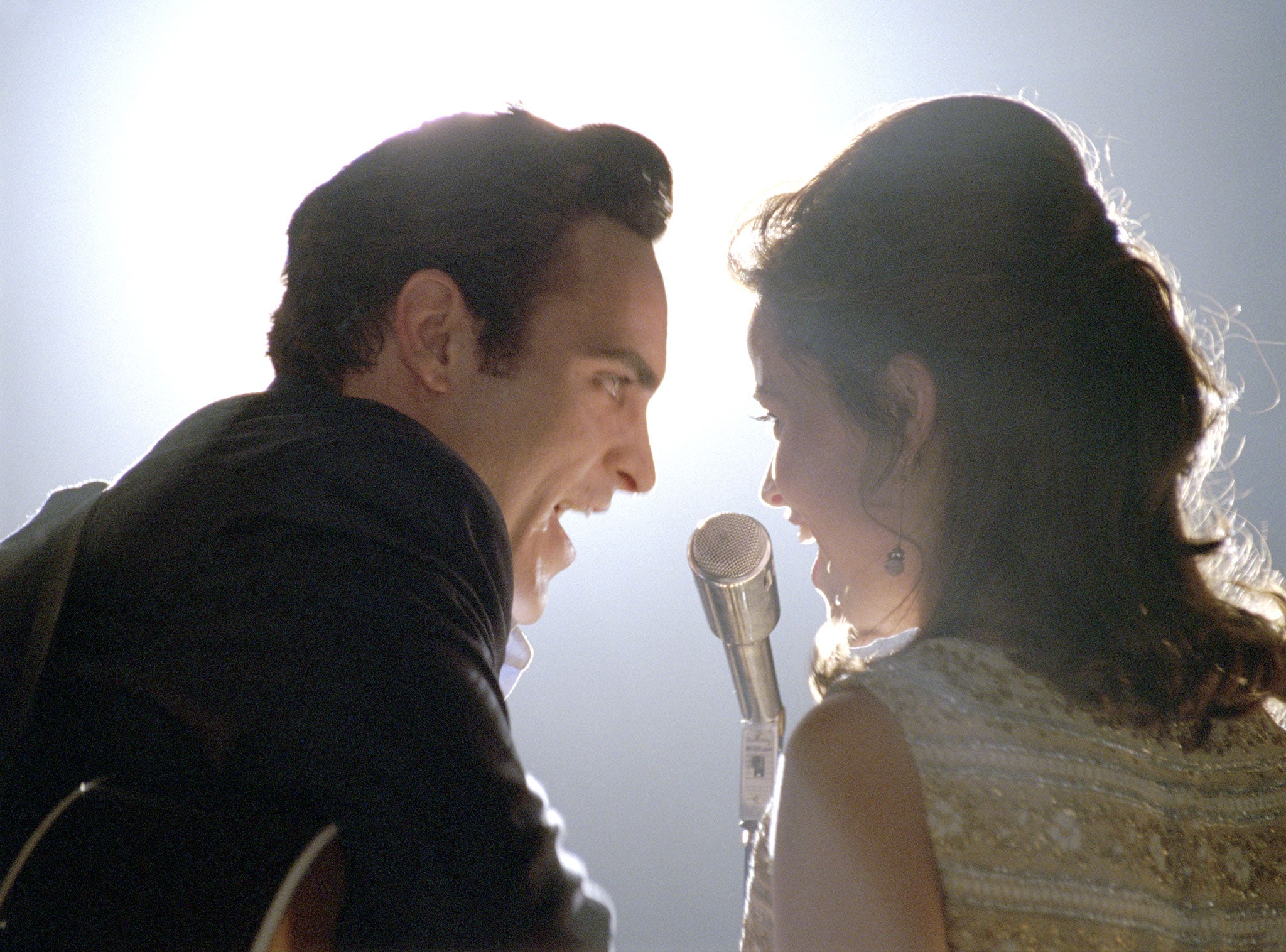
Your answer to that question may depend on your gender. A classic sci-fi anxiety about the future is that new reproductive technology will render men redundant, as women are able to procreate without them, but Her also taps into a more modern counterpart: the redundancy of women. Be it in the form of the latex woman suits men wore in Channel 4's recent documentary Secrets of the Living Dolls, or the disembodied voice of Scarlett Johansson in a computer operating system, or just good, old-fashioned internet pornography, technology threatens to render real, living women irrelevant to male sexual desire and emotional satisfaction.
There may be reasons to fear a crisis in masculinity – or femininity – or the entire future of human relationships, but Phoenix, as usual, has decided to just go with the flow. "I just think, whether you like it or not, its happening and it's evolution. I think there's something really exciting about that. Of course there are things that make you nervous, but I think mostly I'm kind of optimistic." Joaquin Phoenix is not the man he used to be; but, then, who among us is?
'Her' (15) is released on 14 February
Join our commenting forum
Join thought-provoking conversations, follow other Independent readers and see their replies
Comments